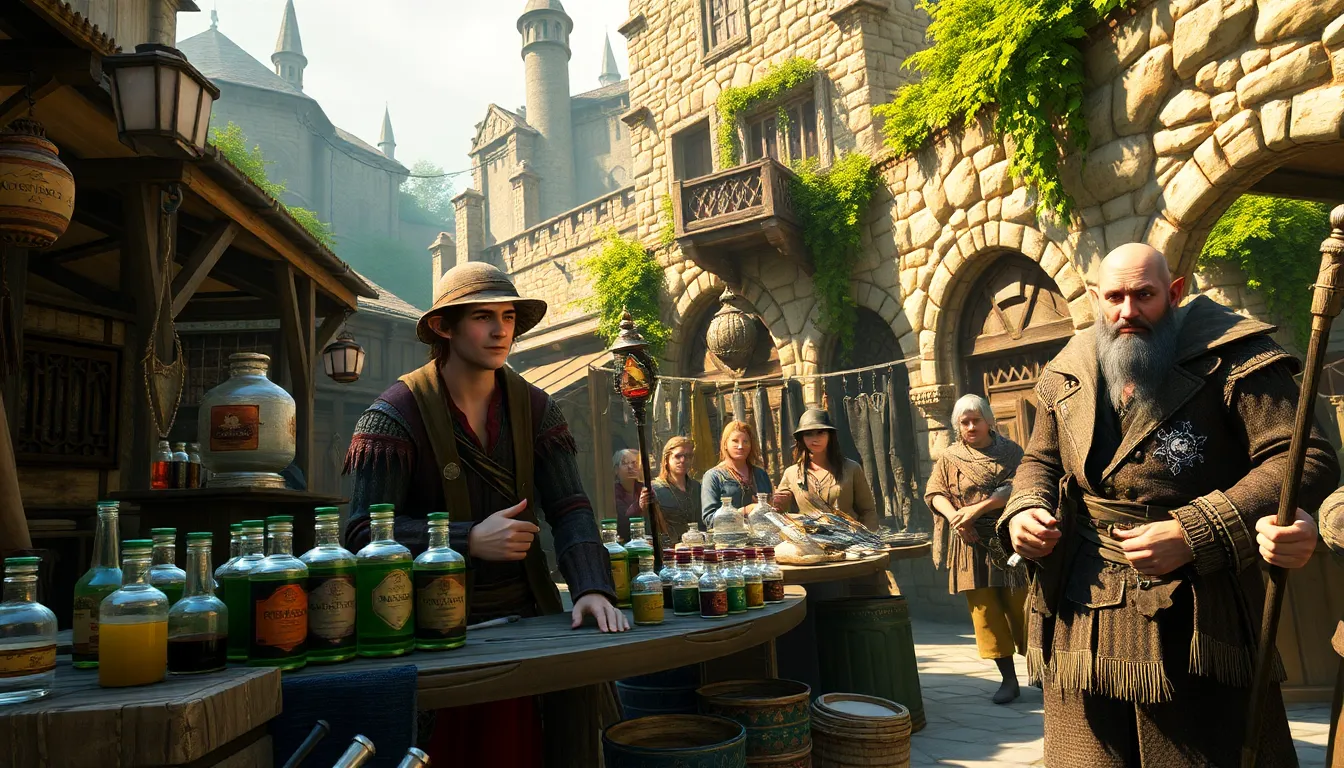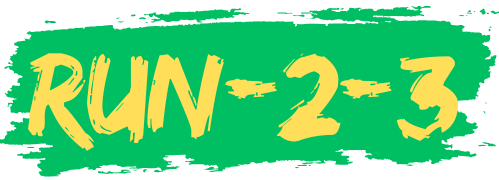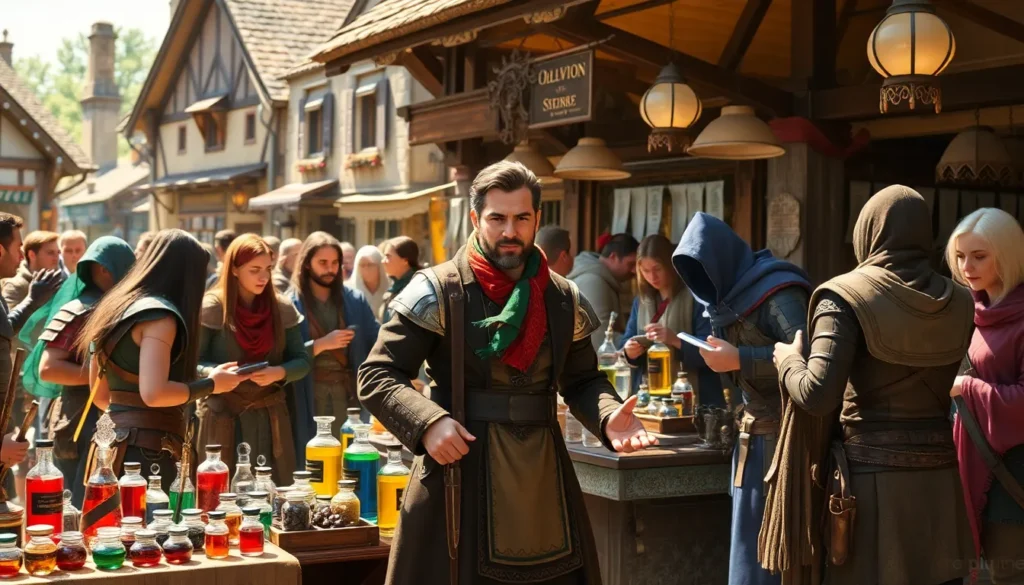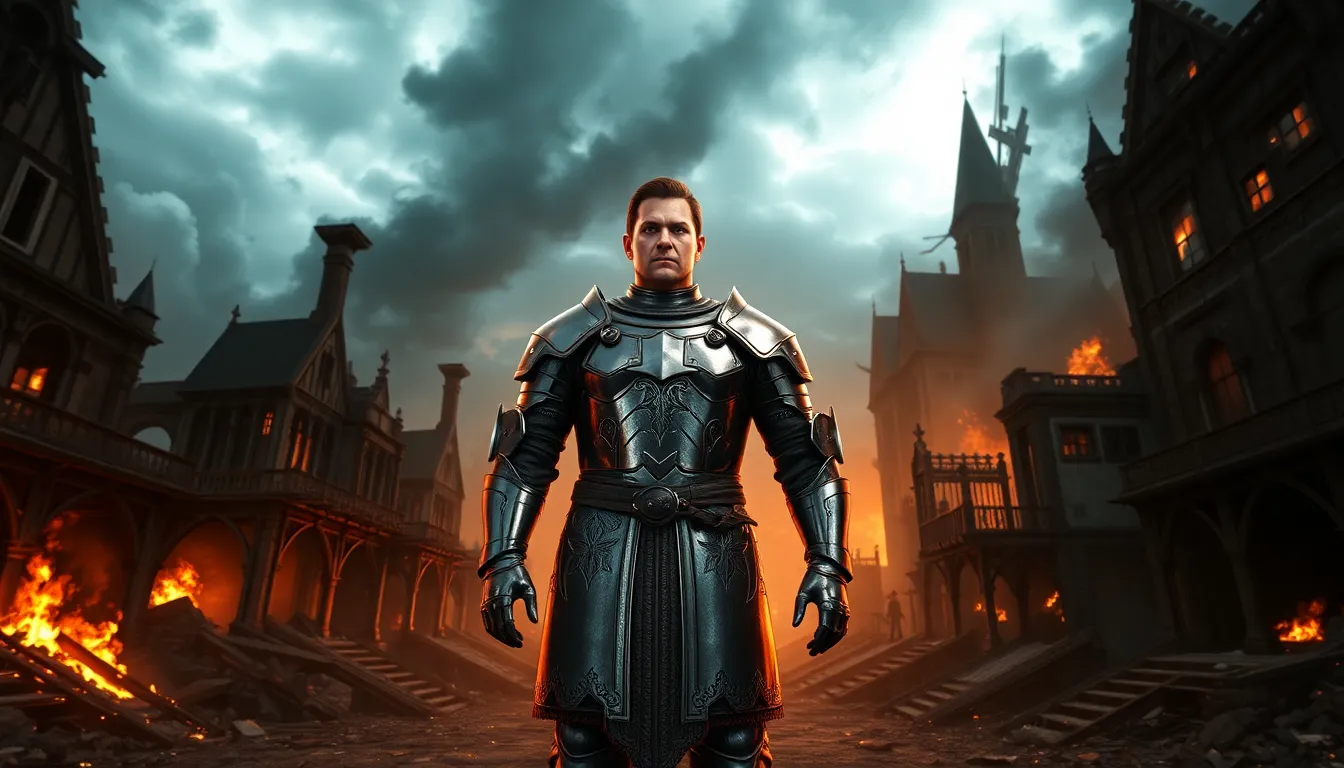Welcome to the captivating world of Oblivion Mercantile, where the art of trade meets the thrill of adventure. If you’ve ever wondered how to make your fortune in Tamriel, or if you’re simply curious about what makes its commerce tick, you’re in for a treat. Forget about boring spreadsheets and stuffy business meetings, here, bartering happens in the bustling streets, amidst the clamor of merchants hawking their wares and adventurers haggling for their next magical potion. Ready to immerse? Let’s set the stage for a vibrant exploration of Oblivion’s thrilling marketplace.
Table of Contents
ToggleUnderstanding Oblivion Mercantile

The History of Commerce in Oblivion
In the rich lore of the Elder Scrolls series, commerce has always played a crucial role. Oblivion, the realm of chaotic daedra, is surprisingly structured when it comes to trade. Merchants have thrived, bringing a trade network that spans across towns and cities, from the bustling markets of Chorrol to the rustic stalls in Bruma. This history isn’t merely a backdrop: it shapes the interactions players experience daily. This realm’s unique economy evolved from ancient barter systems, ensuring even the most dim-witted adventurer can turn a profit if they know where to look.
Key Merchants and Their Specialties
Delving into the market means encountering some notable merchants. Characters like the ever-faithful Arille, owner of the “Wareshop” in Skingrad, provides potions and alchemical wonders that adventurers crave. Meanwhile, Belethor, a trader in Whiterun, boasts an eclectic assortment of goods, including weapons and artifacts gathered from across Tamriel. Each merchant has their unique flair and inventory, making it imperative for savvy adventurers to remember who stocks what. When venturing to these merchants, players should keep in mind individual specialties as they navigate their bustling stalls.
Types of Goods Available
Potions and Alchemical Ingredients
The potions in Oblivion are the lifeblood for many players. Whether it’s fortifying health or boosting stamina, these magical concoctions come in all shapes and sizes. Alchemical ingredients, like Nirnroot and Frost Salts, are crucial for crafting these elixirs. Players can often find ingredients by exploring dungeons or purchasing them from local alchemists, ensuring they’re always prepared for the battles ahead.
Weapons and Armor Offerings
For the combat-ready adventurer, a visit to the local armory is essential. Vendors offer a range of weaponry, from swords forged in the fires of the Atronach Forge to heavy armor pieces resilient against the toughest foes. Enchanting those armaments adds an extra layer of effectiveness, so finding a good deal at the local blacksmith can turn the tide in many a battle. Each weapon type serves a specific purpose, so knowing what to buy can mean the difference between victory and defeat.
Clothing and Accessories in Oblivion
But it’s not all about getting geared up for battle. Fashion matters in Oblivion, too. From the elegant robes of highborn mages to the rugged leather armor of rogue traders, each piece of apparel reflects a player’s chosen role. Accessories, like rings and amulets, provide valuable bonuses, and players often find themselves scouring shops for that perfect pair of enchanted gloves to complete their look. Don’t underestimate the power of a well-dressed adventurer.
The Role of Bartering and Prices
How to Maximize Profit from Trading
When it comes to trading in Oblivion, bartering is an art form. Players should always compare prices from different merchants. This isn’t just about haggling: it’s about understanding supply and demand in the game’s economy. When a player sells their rare loot, like an exquisite daedric sword, they should ensure they’re not selling at a loss. Timing is also crucial: trading when a merchant has just received a fresh shipment can lead to better prices.
Navigating the Local Economy
Players should investigate deeper into the local economy. Each city has its economic quirks. For example, selling ingredients from the nearby wilderness can yield higher profits during festival seasons in towns. Certain quests may even open up new trading opportunities not available to the average adventurer, presenting ways to exploit market gaps.
Tips for Interacting with Merchants
Building Relationships with Traders
In Oblivion, forming relationships with traders can significantly enhance a player’s trading experience. Regular customers often receive better prices and exclusive items. Players should take the time to engage in conversations and complete quests for these merchants. The more trust built, the better the discounts, and who doesn’t love a good deal?
Using Speech Skills to Your Advantage
A player’s speech skills can also tilt the scales in trading. By leveling up their speech proficiently, they can negotiate better terms, turning a standard price into a bargain. Ensuring that one’s conversation skills are as honed as their swordplay can lead to a successful trading lifestyle in Oblivion.





